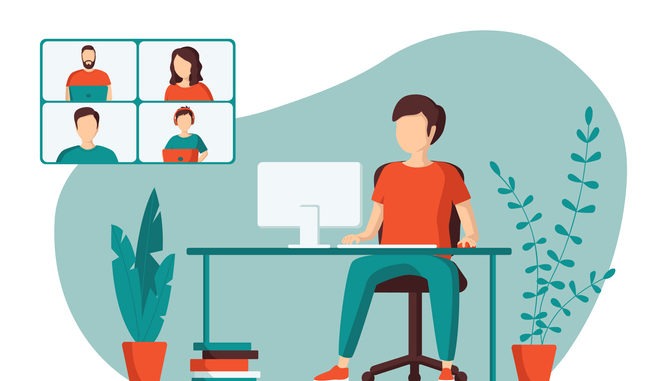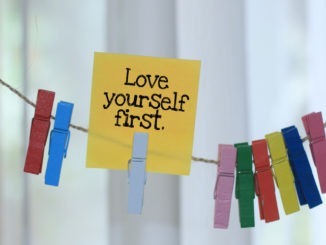
Britons used to love a ‘sickie’ – we even celebrated ‘National Sickie Day’ – but remote working is encouraging people to work while ill
CREDIT: This is an edited version of an article that originally appeared on Management Today
It won’t have escaped many people’s attention that the UK is officially in coughs, colds and ‘flu season – and let’s not even think about this on top of COVID – but, while in the past many people would have ‘phoned in sick and not gone into the office to spread their germs, it seems that remote working could be threatening the very idea of a sick day.
Insecure workers not taking sick days
According to Dr Zofia Bajorek, senior research fellow at The Institute for Employment Studies, working from home is certainly heaping more pressure on staff to prove they are productive. The organisation’s own data found that 26% of staff are working while feeling poorly, and she believes remote working is leaving people more vulnerable. “They’re already conscious that they need to continually prove they are working, so now they are doing it even when ill,” she says.
She believes it is “more important than ever” that managers specifically clarify that if they didn’t expect someone to come to an office to work when they were unwell, they shouldn’t expect them to stay at home and work too. “They need to state clearly that, if people feel poorly, they feel poorly. Working when ill repeatedly is proven to make things much worse in the longer term,” she says.
Managers are responsible for staff wellbeing
Currently is there is no law stopping staff from working while they’re officially off sick – and, according to Deborah Graham-Wilson, head of marketing at Elend Cables, trying to stop people is sometimes difficult. “Among those feeling under the weather, in the majority of cases they still log on for work,” she says. “In fact they have to be pushed to take time off if they’re really not well as, all too often, they feel they can still do something.” This, argue experts, is where strong line management is needed. “Managers need to set their expectations and be clear in presenting their sickness absence policies,” argues Bajorek.
Mark Simmonds agrees. He is the co-founder of creative consultancy Genius You and, in the past, has suffered his own mental health breakdown. “When work was face-to-face, good managers tended to persevere if they didn’t think someone was okay. The same must happen in the online space,” he says. “Poor mental ill-health – which can lead to physical ill-health – risks being hidden through WFH because it’s already a largely invisible illness. Illness can be doubly-invisible when people aren’t seeing each other in person like they used to.”
Some businesses are taking a stand, and making sure that if people say they’re ill, they are ill, and not having any expectations of them. “The idea that people can work from their sickbeds is absolutely insane,” argues Zak Fenton, co-founder, of workplace health and wellbeing firm, bloom mi. “All of the research clearly demonstrates that presenteeism has dire consequences for business, so this kind of thinking from managers can only make things much, much worse,” he says.
Claire Crompton, co-founder of Bolton-based digital marketing agency, The Audit Lab, is on the same page. “If someone is feeling ill on a work-from-home day, we hope we’ve cultivated an environment where people don’t feel expected to work, or to make up ‘lost hours’,” she says. “Our people know we stress the importance of resting if they’re feeling genuinely ill. Often, our managers will push them to have that day off anyway.”
Tell staff not to work – and mean it
However Cary Cooper, professor of organisational psychology and health at the Manchester Business School, and author of the forthcoming book The Healthy Workforce: Enhancing Wellbeing and Productivity in the Workers of the Future, believes that some managers are not authentic enough when they say ‘Don’t work’.
“If they say ‘Don’t work’ – but employees sense they don’t mean it – nothing will change. This is a due to a lack of EQ – something managers have long been criticised as lacking,” he says. Compounding the problem, he argues, is that jobs seem to be more insecure, putting pressure on staff to always be working. “Things won’t change,” he says, “if people feel insecure. That’s the bigger problem we could be facing.”
Jane Fielding, head of employment law at law firm Gowling WLG says, “It’s likely that WFH means people work when they probably shouldn’t be, and employers should be making clear to staff that if they’re ill, they’re ill, and should take sick leave.”
The prevailing advice, it seems, is to be firm, and authentically so. “We know there are nuances of sickness,” says Alan Price, CEO of BrightHR. “Some might not want to face a long drive or train commute-in, or be stuck in traffic, but taking it a bit easier, working from the comfort of home, might do the trick and keep them on top of their workload,” he says. “But, for many illnesses, the best cure is rest. Being pressured to work is the opposite of what is needed, and risks prolonging the illness far longer than necessary.
“We all need to recognise that, sometimes, sick is sick, and we need to look after an employee’s wellbeing.”




Be the first to comment